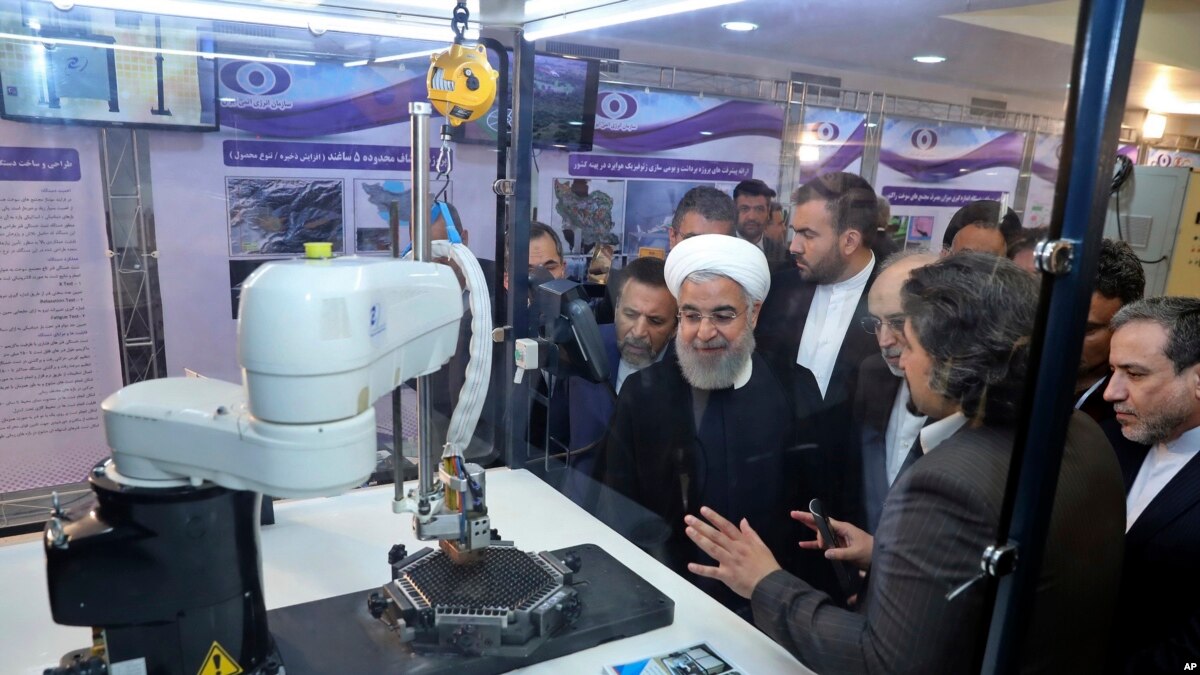
The United States hopes to reach agreement with Britain, France and Germany to address President Donald Trump's concerns about the 2015 Iran nuclear deal, Washington's disarmament ambassador said on Thursday.
The crux of the accord between Iran and six major powers — Britain, China, France, Germany, Russia and the United States — was that Tehran would curb its nuclear program in return for relief from international sanctions that hobbled its economy.
U.N. nuclear inspectors have since repeatedly verified Iranian compliance with the deal and sanctions were rescinded.
On Jan. 12, however, Trump sent an ultimatum to Britain, France and Germany, saying they must agree to "fix the terrible flaws of the Iran nuclear deal" or he would refuse to extend the critical U.S. sanctions relief that it entails.
U.S. sanctions will resume unless Trump issues new "waivers" to suspend them on May 12, although it is unclear how fast they would go into effect. Iran has ruled out renegotiating the deal.
U.S. disarmament ambassador Robert Wood said Washington had been having "intense" discussions with its three major European allies ahead of the May 12 deadline.
He said Washington wanted to address the Iranian ballistic missile program, 10-year "sunset" clauses for limits on its nuclear activity and Tehran's "destabilizing behavior in the Middle East", as well as to toughen inspections by the International Atomic Energy Agency (IAEA) in Iran.
“These issues have to be dealt with. We are hopeful that an agreement can be reached that the president can feel comfortable with,” Wood told a news conference in Geneva.
"We want the IAEA to get access to all the sites they need to. The Iranians obfuscate and deny, say they'll offer access and then deny it. It's important for the IAEA to go anywhere it needs to, including military sites," Wood said.
European officials said after their latest round of talks on April 12 they were making headway toward an agreement, though remain unclear whether a deal could be struck on the sunset clauses and if Trump would embrace their efforts.
Iran has said its nuclear program is for peaceful purposes only and that its ballistic missiles are solely for defense and having nothing to do with its nuclear activity.
It has said it will stick to the accord as long as the other parties do, but will "shred" the deal if Washington pulls out.
While Trump has often lambasted the deal struck under his predecessor Barack Obama, the other big power signatories have said the accord is crucial to reducing the risk of wider war in the Middle East and urged Washington to stick by it.
Speaking ahead of French President Emmanuel Macron's trip to Washington next week, an aide to the leader said there had been progress in talks with the United States, but Paris was being prudent as the "moment of truth" approached.
"We know that President Trump hasn't made his decision yet so we are continuing to exchange and defend our arguments," the aide said. "But we must be very cautious and we shouldn't expect a breakthrough on this issue during the visit to Trump."
No comments:
Post a Comment